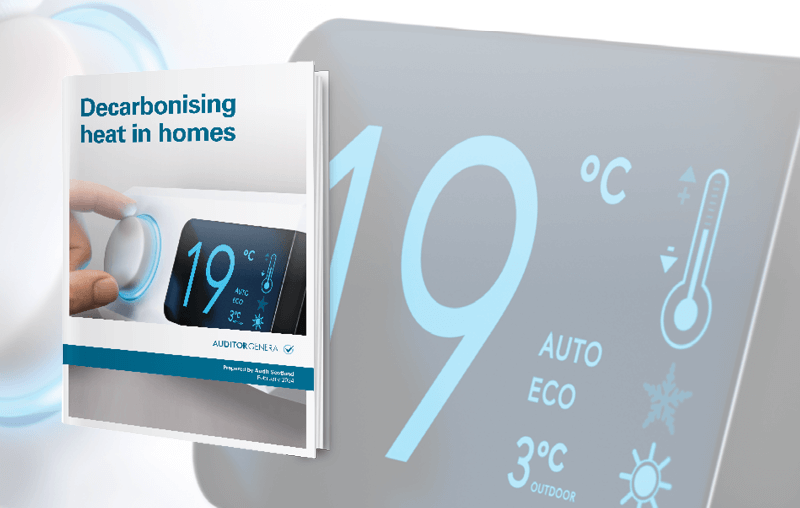Home heating switch faces significant risks

The Scottish Government will not be able to phase out fossil-fuel home heating systems by 2045 unless it significantly increases the scale and pace of activity.
Ministers published the Heat in Buildings Strategy in 2021 and officials then spent almost two years building a team to deliver it. This delay was due to resource constraints, but the Scottish Government would have benefited from addressing its capacity needs sooner. Good progress has been made since 2023, but officials now need to produce a clear action plan.
There are significant risks ahead. Success will depend on many pillars, including raising public awareness, providing financial support to homeowners, and securing private finance and supply chain capacity. Much of this work is at an early stage and needs to be advanced before legislation on how homes are heated is passed by the Scottish Parliament.
The Scottish Government has committed £1.8 billion of public money in this parliament to deliver its strategy. It currently estimates it could cost the public sector, businesses, and households £33 billion in total. But the final cost will be influenced by several factors, including inflation, the price of heating systems and the impact of new legislation.
Stephen Boyle, Auditor General for Scotland, said:
Getting most households in Scotland to change to low carbon heating systems is a huge challenge. It is complex and relies upon a range of stakeholders and partners, including the public, the private sector and the UK Government.
The Scottish Government now needs to carefully consider how to maximise its public spending and set out a clear delivery plan. It also needs to help the private sector to roll out funding deals that will support people to change how they heat their homes.





